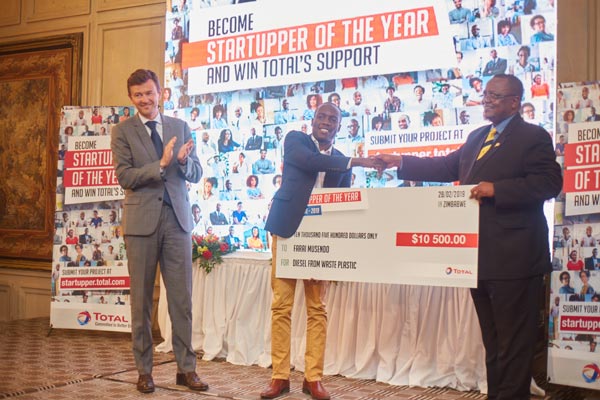
BY FIDELITY MHLANGA
A ZIMBABWEAN upcoming entrepreneur has secured US$70 million in funding to transform solid waste into electricity.
The funding was secured through a Chinese renewable energy contractor under the Climatic Action Emergency Programme, said Farai Musendo, a chemical engineer who has previously won the CBZ young entrepreneurs programme and the Total start-up challenge due to his innovative ideas.
In an interview with standardbusiness, Musendo said his project would involve the transformation of municipal solid waste into power.
Under the United Nations sustainable development goals on climate action, the idea is to strengthen resilience and adaptive capacity to climate-related hazards and natural disasters in all countries and integrate climate change measures into national policies, strategies and planning.
Apart from providing power to Harare, the 40-megawatt (MW) project will create employment.
Through the funding, Zimbabwe will be among a few African countries to have such electricity generation plants, which will be modelled along the Reppie Waste to Energy plant in Ethiopia.
“A total of US$70 million has been secured through a Chinese renewable energy contractor under Climatic Action Emergency Programme and is enough to fund all project activities to the successful commissioning of the plant till there is no load-shedding in Harare,” Musendo said.
- Chamisa under fire over US$120K donation
- Mavhunga puts DeMbare into Chibuku quarterfinals
- Pension funds bet on Cabora Bassa oilfields
- Councils defy govt fire tender directive
Keep Reading
“Part of the funding will go towards purchasing of a fleet of garbage trucks, which will move around the community collecting the waste for sustainable environment/waste management.
“Various waste collection points will also be developed in different communities for sustainable waste segregation.”
He added: “This project involves generation of electricity from municipal solid waste such as plastics, tyres, paper, clothing and others.
“Harare generates approximately 500 000 tonnes of municipal solid waste annually with only 8% going into the circular economy (recycling).
“The waste generated in Harare is sufficient to run the 40MW plant which has a capacity to process 1 500 tonnes of trash per day.”
Musendo said he had started engagements with the Harare City Council and the energy regulator as well as environment authorities to secure land and licences to start the project.
In 2019, Musendo won the Total Zimbabwe start- -up challenge after fascinating the energy giant with an innovative idea to convert waste into diesel.
He was second runner-up in the CBZ Holdings Youth Entrepreneurs Programme (YEP) 2018 edition for his biogas and waste management project.
According to the United Nations Sustainable Development goal on affordable and clean energy, the target is to increase substantially the share of renewable energy in the global energy mix and double the global rate of improvement in energy efficiency by 2030.
In the United States of America, renewables made up 26,2% of electricity generation in 2018 and is expected to rise to 45% by 2040.
Most of the increase will likely be sourced from solar, wind and hydropower.
This renewable energy project comes at a time when the country is experiencing rolling power blackouts, which are affecting the smooth running of industries especially in the manufacturing sector.
According to research by the Confederation of Zimbabwe Industries on the state of the manufacturing sector in the country, power cuts are among the five top structural bottlenecks negatively affecting industrial production.
Power outages have also heavily disrupted the accessibility and availability of essential basic social services such as water, sanitation, education and health.
Currently Zimbabwe has a power generation capacity of 1 300MW, which is not sufficient to meet estimated demand of 2 400MW.
To supplement the power deficit, Zimbabwe currently imports electricity from South Africa and Mozambique.
Musendo’s project, like several other independent power projects that are in the pipeline, will be important for substituting electricity imports.











